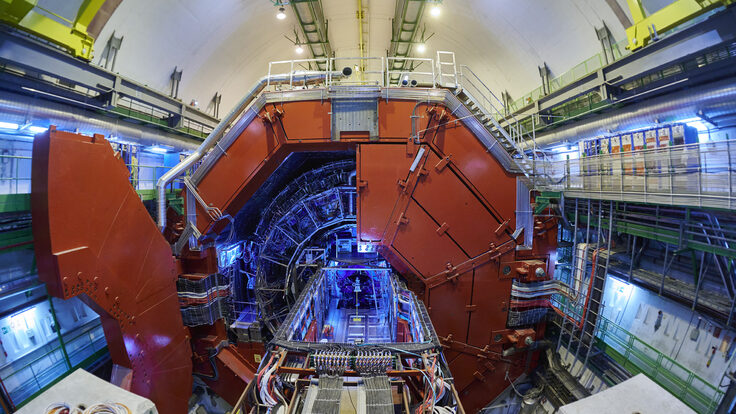
After a decade in lab management, I feel this is the right time for me to get back to my first loves of research and teaching,' Persis Drell said. (L. Cicero, Stanford University)
The following press release was issued today by Stanford University:
Stanford University announced today that Persis S. Drell, director at SLAC National Accelerator Laboratory, has decided to return to her position as a faculty member. She has asked the president and the provost to initiate a search for her successor. Drell will stay on as SLAC Director until a replacement is in place.
Drell has served in positions of increasing responsibility with SLAC since 2002 and was named as the laboratory's fourth director in December 2007. She is widely credited with having made SLAC one of the leading laboratories under the stewardship of the Department of Energy (DOE) Office of Science. During her tenure as director, SLAC moved from being a laboratory dedicated primarily to research in the area of high-energy physics to one that is now seen as a world leader in advancing discoveries in a number of scientific disciplines. In 2010, the laboratory began operations on the Linac Coherent Light Source (LCLS), the world's most powerful X-ray laser, which promises to revolutionize the view of the atomic world as it performs basic scientific research and drives applications in energy and environmental sciences, drug development and materials engineering.
"Persis has been a phenomenal leader at SLAC," said John Hennessy, Stanford's president. Stanford operates SLAC on behalf of the DOE Office of Science. "Under her guidance, the laboratory has seen a true renaissance, and is now involved in scientific pursuits in areas ranging from energy research to biology and medicine. She has served SLAC, the DOE and Stanford incredibly well. It's difficult to see her step down, but I respect her wishes to return to her academic roots and am happy she will continue her work at Stanford."
Under Stanford Provost John Etchemendy's direction, a committee is being assembled to conduct an international search for a new laboratory director. The committee will be co-chaired by William Madia, Stanford's vice president for SLAC, and Roger Blandford, director of the Kavli Institute for Particle Astrophysics and Cosmology and a professor of physics at SLAC and Stanford. The committee expects to undertake the search and conduct interviews during the first six months of 2012.
"My four years as laboratory director at SLAC have been exciting and rewarding," Drell said, "but after a decade in lab management, I feel this is the right time for me to get back to my first loves of research and teaching. I couldn't be more proud of what the staff at SLAC has accomplished. The laboratory is extremely well positioned for a future of outstanding science. I can't predict what the future will hold, but I'm excited about the possibilities for both SLAC and for myself in the coming years."
"I've known Persis for 32 years, ever since she was a first year graduate student with Professor Eugene Commins at the University of California-Berkeley," said Steven Chu, U.S. Secretary of Energy. "At that time, I was completing my postdoctoral appointment at Berkeley, working in the same group, and together we built a laser system that was later used in her graduate thesis. The following year, she worked for a brief period in my lab as part of a Bell Labs mentoring program, the Graduate Research Program for Women.
"We maintained our friendship during the remainder of her time at Berkeley, her time as professor at Cornell, and then when she joined SLAC and Stanford. She is an exceptional administrator and gifted scientist. Most of all, I value her as a close friend, confidant and adviser over these many years. What she has done for SLAC in her tenure as director is nothing short of remarkable. Her wish to step down as lab director is a loss for the administration of SLAC and the Department of Energy. Luckily, SLAC, Stanford and the Department of Energy will continue to benefit from her considerable talents as a scientist and professor."






